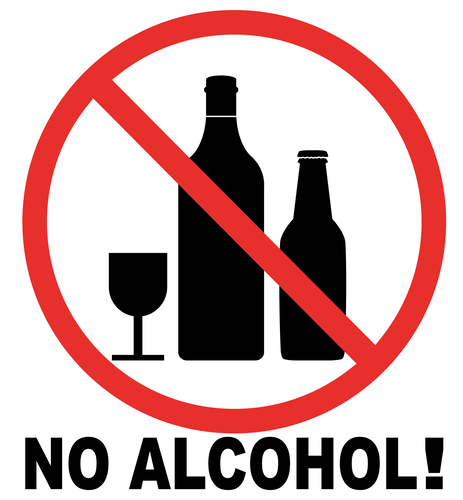While blame may be appropriate in many situations, there is a real possibility of blowing it out of proportion. People experiencing cognitive distortions are much more likely to latch on to the idea of assigning responsibility for failure, and take it too far. Identify and correct thinking errors in addiction with our comprehensive guide. It’s like joining a team where everyone is working towards the same goal. Hearing others share their experiences with thinking errors can provide new perspectives and strategies you might not have considered. Remember, overcoming thinking errors is a process, not a one-time event.
Addressing Overgeneralization Through CBT
Professional success, happiness, social behaviour – these types of ideas are best measured as part of a spectrum, where progress is continuous and it matters whether failures are slight or major. A commonly seen cognitive distortion is the tendency to flatten outcomes into simple black and white. Making a social mistake can be unhelpful, and having a drink when you promised not to can be a setback. But there is a real danger in thinking ‘I’m a failure’ after each mistake, because doing so can lead you to give up on the entire effort. In cognitive therapy, an error in thinking is commonly referred to as a cognitive distortion or a cognitive bias.
Jumping to Conclusions or Mind-reading
When you hear these words in your thoughts, ask yourself if this is really true or is this all-or-nothing thinking. Use of this site constitutes acceptance of Sober Recovery’s “Terms of Use”, “Privacy Policy”, “Cookie Policy”, and “Health Disclaimer”. The material on this site is for informational purposes only, and is not a substitute for medical advice, diagnosis or treatment provided by a qualified health care provider. This http://www.babyparadise.ru/index.php?productID=1674&discuss=yes happens when someone generalizes one or two qualities into a negative global judgment about themselves.
Most Common Addict Behavior
Irrespective of the individual, addiction may cause people to act out of character. Drug-seeking behavior induced by cravings and withdrawal symptoms and structural changes in the brain cause a series of negative behavioral traits. Make sure you’re taking the time you need to work on your mental health to help you have the best odds at long-term sobriety and healthy life.
Overgeneralization can lead to the belief that one’s addiction defines all their relationships. This distortion can alienate individuals from supportive friends and family who genuinely care about their well-being. The focus of this article is to learn to recognize common ways of thinking that lead to emotional upsets and, as a result, unwanted behaviors… such as addiction.

We are all guilty of letting cognitive distortions take over our emotions and beliefs more than once. Unfortunately, these negative thinking patterns can often be so subtle we don’t notice them until someone else points them out. Overcoming thought patterns that have become habitual is no easy task – and reaching out for professional help is often the quickest way to make progress. In fact, the steps outlined above are some of the same strategies used in cognitive behavioral therapy, as well as a number of different evidence-based mental health treatments. Most of my clients have some cognitive distortions or thinking errors around themselves and their addiction.
- Hearing others share their experiences with thinking errors can provide new perspectives and strategies you might not have considered.
- For example, if a person thinks they need a drink to relax, this may develop into alcoholism.
- Addiction and addiction levels are etiologically complex syndromes strongly influenced by diverse risk factors (including genetic and social influences).
- This cognitive distortion, similar to discounting the positive, occurs when a person filters out information, negative or positive.
In this pattern of thinking, a person may expect divine rewards for his or her sacrifices. This extreme form of all-or-nothing thinking occurs when a person discounts positive information about a performance, event, or experience and sees only negative aspects. A person engaging in this type of distortion might disregard any compliments or positive reinforcement he or she receives. I do it with one-on-one clients and group activities, but you can also do it with family members and friends who can provide positive solutions and support.

Levels of Addiction
- While it may seem daunting at first, remember that you don’t have to do it alone.
- Unfortunately, these negative thinking patterns can often be so subtle we don’t notice them until someone else points them out.
- It can be helpful to work through your thoughts with a supportive friend or counselor, who can provide a more objective perspective of your situation.
This cognitive distortion, similar to discounting the positive, occurs when a person filters out information, negative or positive. For example, a person may look at his or her feedback on an assignment in school or at work and exclude positive notes to focus on one critical comment. Regardless of what happens in life, we always have the power to choose our attitude. So what’s the difference between someone who remains hopeful despite experiencing great suffering and the person who stubs his or her toe and remains angry the rest of the day? Chemical changes in the brain influence thoughts about obtaining and using substances to create a desired effect of euphoria. These physical and psychological http://teamofthebest.ru/how-do-you-get-alcohol-out-of-your-system-fast/ cravings will produce thought patterns which are common to all addicts’ personality features.

Cognitive Distortion 2. Overgeneralization: Breaking Free from False Assumptions
Cognitive-behavioral therapy (CBT) is an evidence-based approach that helps individuals identify and replace distorted thinking patterns with more positive and accurate thoughts. Through cognitive restructuring, individuals can develop healthier http://wilka.ru/lyrics/index.php?newsid=61072 perspectives and coping strategies. CBT is a widely used therapeutic approach that focuses on identifying and changing negative thinking patterns. In addiction treatment, CBT helps individuals recognize their thinking errors, understand the link between thoughts, feelings, and behaviors, and develop healthier coping mechanisms.


